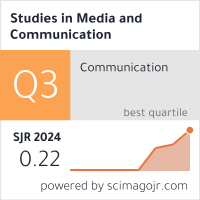The Drivers of Customer Satisfaction in Interactions with Virtual Agents: Evidence from South Africa
Abstract
The advent of the fourth industrial revolution has increased the application of artificial intelligence in various marketing related activities. Organisations are increasingly using artificial intelligence through virtual agents to aid and facilitate interactions with consumers. Clearly, virtual agents need to be capable of fulfilling customer needs. However, it raises the question of whether they should be cold and unfeeling or should imitate the most innate human qualities. This research therefore set out to examine what impact humanness, perceived agency, trust, and emotionality have on customer satisfaction in interactions with virtual agents, or, more specifically, AI chatbots. A quantitative research design was employed in the study. Data were collected by using a survey questionnaire and a total of 207 respondents were obtained. Data were analysed using IBM SPSS 28, where a linear regression was performed. The results indicate that humanness and perceived agency were significant predictors of customer satisfaction. On the other hand, emotionality and trust were not significant predictors. The results of this research have theoretical and practical implications for both practitioners and researchers.
Full Text:
PDFDOI: https://doi.org/10.11114/smc.v11i7.6365
Refbacks
- There are currently no refbacks.
Studies in Media and Communication ISSN 2325-8071 (Print) ISSN 2325-808X (Online)
Copyright © Redfame Publishing Inc.
To make sure that you can receive messages from us, please add the 'redfame.com' domain to your e-mail 'safe list'. If you do not receive e-mail in your 'inbox', check your 'bulk mail' or 'junk mail' folders.
If you have any questions, please contact: smc@redfame.com
------------------------------------------------------------------------------------------------------------------------------------------------------

